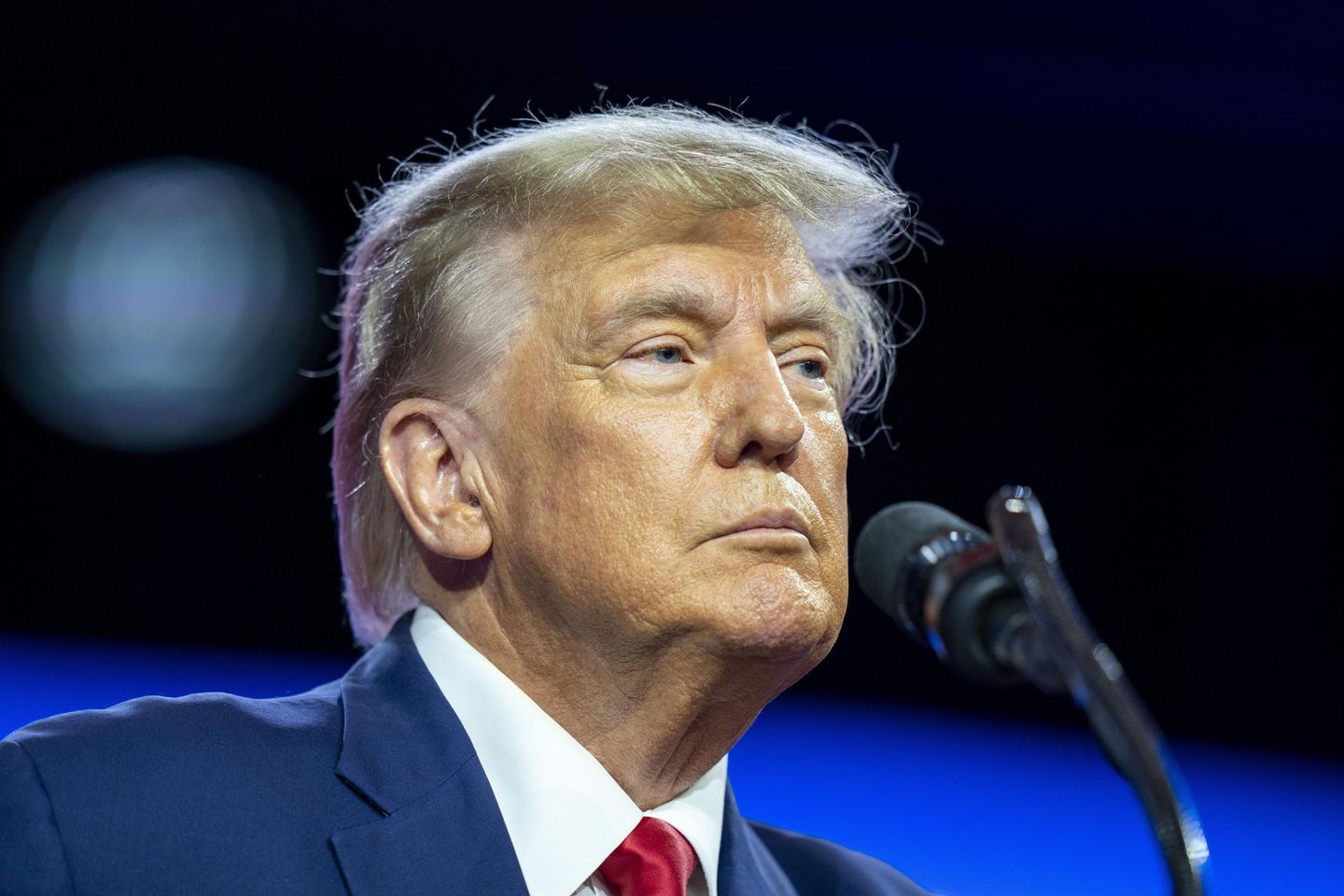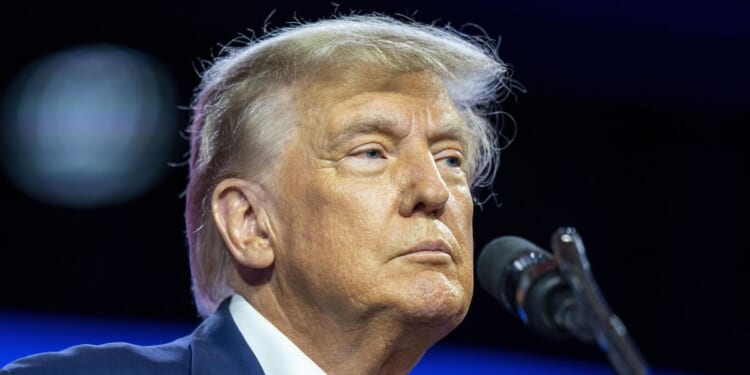
State election officials are begging the Supreme Court to be wary of allowing states to kick Donald Trump off the ballot this year, saying that granting them that power threatens to create an electoral arms race of retaliation.
Missouri Secretary of State John R. “Jay” Ashcroft led 10 other secretaries in cautioning the justices to tread lightly on the Constitution’s “insurrection clause,” which is what Colorado and other Trump opponents are using to deny him a ballot position.
“It was never meant to stand alone as a basis for States to disqualify candidates from federal office,” Mr. Ashcroft and his fellow secretaries wrote in a brief.
The danger, analysts warn, is that if Mr. Trump is denied a ballot position by blue-state officials under an iffy legal theory about insurrection, red-state officials will find reasons to deny President Biden a place on their ballot.
At issue is the 14th Amendment, which prohibits someone from holding a U.S. office if they, while previously an officer, engaged in insurrection or rebellion or gave aid or comfort to an enemy of the Constitution.
Mr. Trump has been challenged under the insurrection part, with opponents saying his behavior surrounding the 2020 election qualifies for sanction.
Colorado’s Supreme Court in December ruled that the secretary of state there must remove Trump’s name from the ballot for the March primary. Mr. Trump appealed to the U.S. Supreme Court, which will hear the case on Thursday.
Challenges have also been filed against President Biden. In Illinois, where voters contended the president’s weak foreign policy and border chaos, which has enriched smuggling cartels, qualify as aid or comfort to an enemy.
The state board rejected both challenges, ruling Tuesday that Mr. Trump and Mr. Biden will remain on the ballot.
Mr. Ashcroft and his fellow secretaries told the U.S. Supreme Court that’s exactly the kind of decision-making they shouldn’t be involved in.
“This case asks the Court to address the following question: Who decides when a presidential candidate is disqualified from a State’s primary election ballot? Whatever the answer to that question, it emphatically should not be a power given to Secretaries of State,” they argued in their brief.
“It would also introduce serious practical problems that would heighten partisan politics and lead to anti-democratic results. Whoever decides disqualification on the basis of insurrection, it should not be these state actors,” they said.
Joining Mr. Ashcroft were secretaries from Alabama, Arkansas, Idaho, Indiana, Kansas, Montana, Nebraska, Ohio, Tennessee and West Virginia.
Michigan Secretary of State Jocelyn Benson, a Democrat, filed her own brief with the justices saying whatever they do, they must address all the big questions now. Otherwise, she said, parties will be back before the justices again later this year, after the primary season and before the general election.
In Michigan, courts ruled Ms. Benson couldn’t disqualify Mr. Trump from the GOP primary ballot — but left the door open for challenges under Section 3 to resurface ahead of the general election.
“Finality must come now so that the states and their election officials can conduct efficient and meaningful elections,” Ann M. Sherman, Michigan’s solicitor general, argued.
The secretaries did not come down for or against Mr. Trump, but rather wanted to shape the contours of the justices’ eventual ruling.
Curt Levey, president of the Committee for Justice, said Ms. Benson’s brief and the red state brief both want the same thing — not to have to be the ones deciding Mr. Trump’s ballot fate.
“In both cases, their arguments go way beyond Colorado. They are both in some sense … arguing the same thing, which is please don’t make us decide,” he said.
Adam Feldman, Supreme Court scholar and creator of the EmpiricalSCOTUS blog, said it was striking that government officials were asking the court to limit their powers.
“Very seldomly do we get multiple amicus briefs asking for the Court‘s clarification in a matter that will then result in implementation and asking for the Court to take power away from the party filing the brief,” he said. “This is new terrain though and so the request for clarity is practical and it is important that whatever the Supreme Court does, it creates a systematic means by which to resolve this question across states.”
Colorado Secretary of State Jena Griswold wanted the power and asked the justices to let her keep Mr. Trump off the ballot. Her lawyers even requested time to argue part of the case before the high court, which the justices allowed.
A ruling from the high court could come soon after oral arguments, given the time-sensitive nature of the dispute and looming primaries. Colorado’s primary is slated for March 5.
A quick decision is not unprecedented. In 2000, the high court issued a ruling in Bush v. Gore the day after oral arguments in the dispute over Florida’s ballot recount, which determined the outcome of the presidential election.
The insurrection clause reads: “No person shall be a Senator or Representative in Congress, or elector of President and Vice-President, or hold any office, civil or military, under the United States, or under any State, who, having previously taken an oath, as a member of Congress, or as an officer of the United States, or as a member of any State legislature, or as an executive or judicial officer of any State, to support the Constitution of the United States, shall have engaged in insurrection or rebellion against the same, or given aid or comfort to the enemies thereof.”












